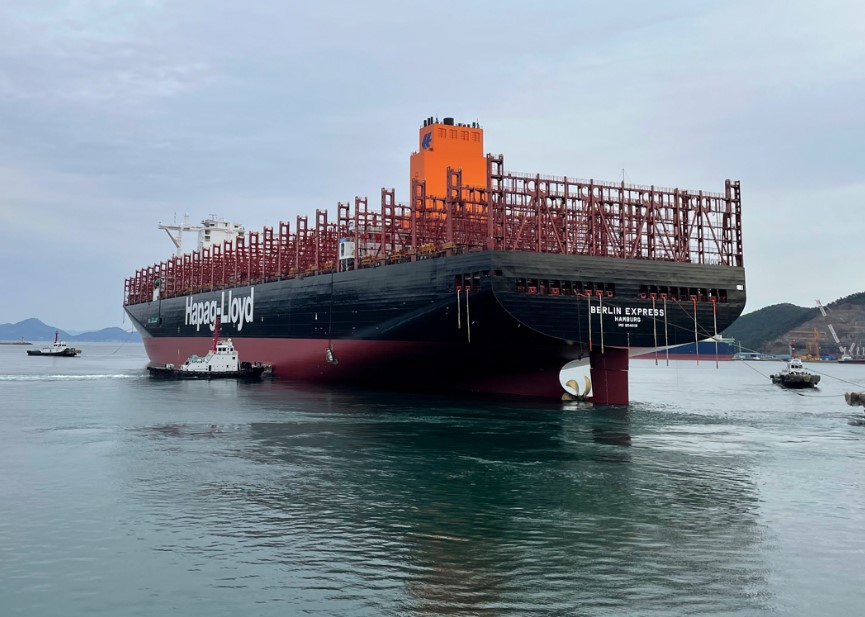A unit of LNG giant Shell will bunker Hapag-Lloyd’s 12 LNG-powered containerships in the Dutch port of Rotterdam under a new deal revealed on Monday.
Shell Western LNG and Germany’s Hapag-Lloyd announced in a statement that they have signed a multi-year LNG bunkering agreement.
The partners expect bunkering for these twelve new vessels with a capacity of more than 23,500 teu to start during the second half of 2023.
Hapag-Lloyd and Shell did not provide any additional information regarding the LNG bunkering deal.
The ships will work on Europe-Far East routes and call at major ports including Rotterdam, Hamburg, Singapore, as well as Shanghai.
Shell has an extensive network of 15 LNG bunkering locations in 10 countries globally, and has already achieved over 1,000 ship-to-ship bunkering operations to its marine customers, the statement said.
Also, this announcement supports Shell and Hapag-Lloyd’s long-standing collaboration, which over the past years included the LNG bunkering of Brussels Express, the world’s first large container ship that was converted to LNG propulsion.
South Korea’s Daewoo Shipbuilding & Marine Engineering is building these twelve ultra large LNG-powered container vessels for Hapag-Lloyd.
Hapag-Lloyd first ordered six LNG dual-fuel 23,660-teu containerships from DSME in 2020, but it added six more sister vessels in 2021, with a total price tag of about $2 billion.
Moreover, the German shipping firm will take delivery of these vessels in 2023 and 2024 and all of the vessels will feature MAN ME-GI main engines.
Hapag-Lloyd recently announced the launching of the LNG-powered Berlin Express at the DSME yard in South Korea.
Decarbonization deal
In addition to the LNG supply agreement, Shell and Hapag-Lloyd have entered into a strategic collaboration agreement intended to accelerate the further decarbonization of alternative marine fuels, the statement said.
“Initial focus will be given to developing the potential of additional low carbon fuels solutions including liquefied biomethane and the hydrogen-based fuel liquefied e-methane,” the statement said.
Liquefied biomethane as a marine fuel has the potential to reduce greenhouse gas emissions by between 65 percent and 100 percent, according to the partners.
“Hapag-Lloyd has finalized a contract with Shell which secures flexible LNG supply at competitive terms,” Jan Christensen, senior director global fuel purchasing at Hapag-Lloyd, said in the statement.
“Furthermore, we are excited about our agreement with Shell to explore further decarbonization opportunities as it allows both businesses to drive impactful change in the industry,” he said.
Tahir Faruqui, general manager, head of downstream LNG at Shell, added that “shipping decarbonization must accelerate and, as the lowest-carbon fuel available at scale today, LNG is a key part of the transition to lower-carbon marine fuels.”

